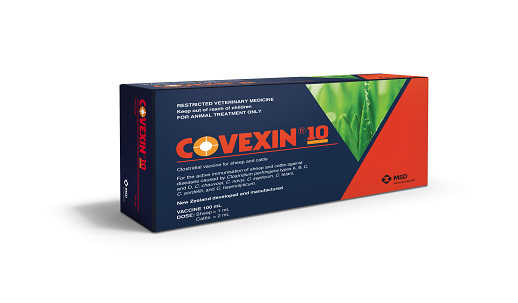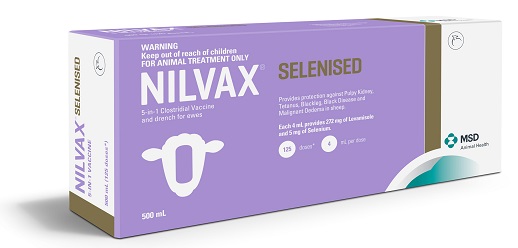Multine®
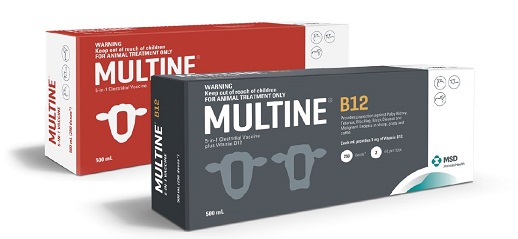
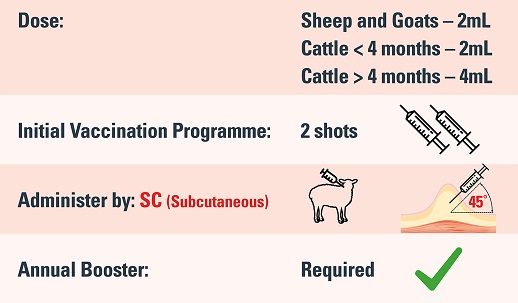
Protect sheep, goats and cattle with Multine a 5-in-1 clostridial disease vaccine that protects against; pulpy kidney, malignant oedema, tetanus, black disease and blackleg
Vaccination Programme:
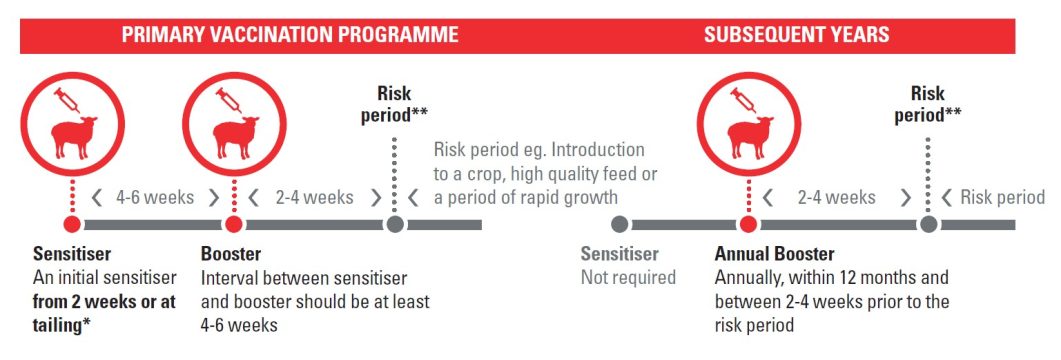
**Risk period: e.g. Introduction to a crop, high quality feed or period of rapid growth.
The Multine range provides farmers with a tried and proven clostridial vaccine in a range of forms which are interchangeable. This allows animal health plans to be tailored to ensure the best product is used for different stock types at different times during the farming calendar.
Refer to the diagram below to help determine which Multine product to use when.
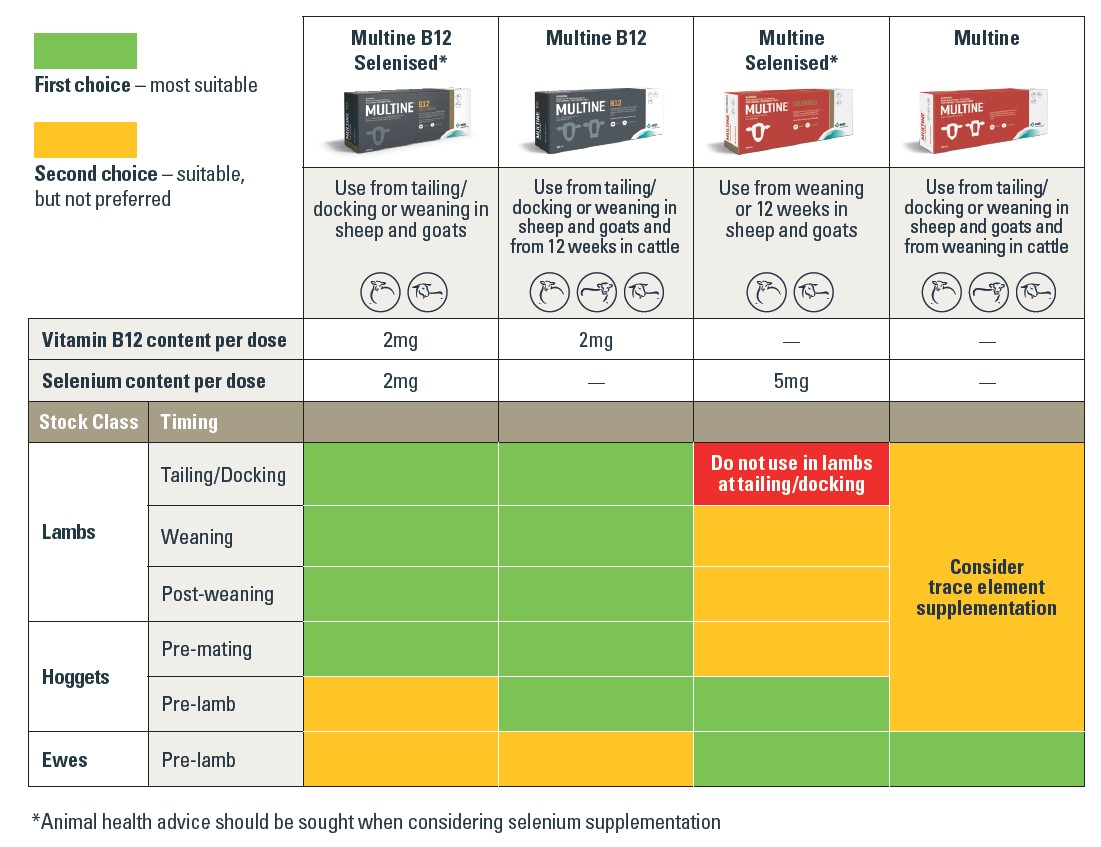
Stock type: Sheep, Goats & Cattle
MULTINE IS AVAILABLE FROM YOUR VET OR RURAL RETAILER.
- Dose: Sheep & Goats – 2mL
Cattle < 4 months – 2mL
Cattle > 4 Months – 4 mL - Initial Vaccination Programme: 2 shots
- Annual Booster: Required
- Administer by: Subcutaneous (SC) injection
- Stock type: Sheep, Goats & Cattle
*Selenised variants are not indicated for use in cattle.
Clostridial diseases (including but not limited to Tetanus, Pulpy Kidney, Blackleg, Malignant Oedema & Black disease) are caused by anaerobic bacteria that are common and widespread in the environment, particularly in soil.
The bacteria produce spores that can survive in the environment for a very long time.
To learn more listen to the Head Shepherd podcast about Clostridial diseases featuring MSD Animal Health vets Hamish Pike and Felicity Wills
The disease-causing bacteria may be picked up at any time by susceptible animals through either wound contamination or ingestion.
Clostridial diseases strike rapidly and are almost always fatal. Very rarely are clinical signs seen, with infected animals presenting as “found dead”.
Risk factors are a mixture of animal and environmental factors:
- Animal: reduced immunity, injury and wound infection, liver damage, young stock or rapidly growing stock
- Environmental: highly digestible feed, increased exposure to soil in the diet
Vaccination is one viable means of control.
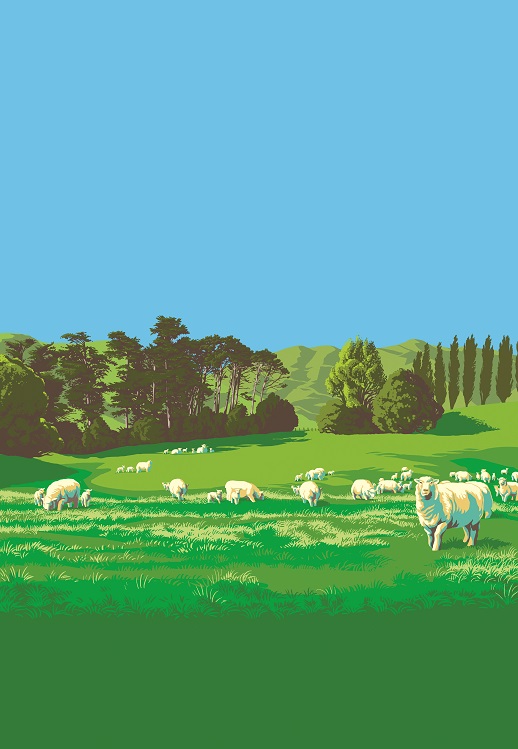
Benefits of vaccination with Multine:
- Provides protection against Pulpy Kidney, Tetanus, Blackleg, Black Disease and Malignant Oedema in sheep, goats and cattle*
- A two-shot programme provides up to 12 months protection
- Can be used in any class of stock: pre-lamb in ewes and anytime from tailing/docking onwards in lambs
- Available in vitamin B12 (Multine B12 and Multine B12 Selenised) and Selenised (Multine Selenised and Multine B12 Selenised) options.*
Multine is New Zealand’s leading 5-in-1 clostridial vaccine range1.
The Multine range provides farmers with a tried and proven clostridial vaccine in a range of forms which are interchangeable. This allows animal health plans to be tailored to ensure the best product is used for different stock types at different times of the farming calendar.
Better yet Multine is Made in New Zealand specifically for our unique conditions.
Frequently Asked Questions:
| What is Multine? | Multine is New Zealand’s leading range of clostridial vaccines, designed to protect sheep, goats, and cattle against various clostridial diseases such as pulpy kidney, malignant oedema, tetanus, black disease, and blackleg. |
| What is the recommended vaccination programme for Multine? | The initial vaccination programme for Multine requires two shots (4-6 weeks apart). An annual booster is also required. The doses vary depending on the stock type and age. For sheep and goats, as well as cattle under 4 months, the dose is 2mL. For cattle over 4 months, the dose is 4mL. |
| Where can I buy Multine? | Multine is available from your veterinarian or rural retailer. For more visit our Find a Supplier page. |
| How is Multine administered? | Multine is administered by subcutaneous (SC) injection. |
| Can I use Selenised variants of Multine in cattle? | No, Selenised variants are not indicated for use in cattle. This is because the selenium is a sheep dose so it is likely to be sub-therapeutic for cattle. |
| What are clostridial diseases? | Clostridial diseases, including (but not limited to) Tetanus, Pulpy Kidney, Blackleg, Malignant Oedema, and Black Disease, are caused by anaerobic bacteria that are common and widespread in the environment, particularly in soil. These diseases can be fatal, often strike rapidly, and can be picked up by susceptible animals through wound contamination or ingestion. |
| What are the risk factors for clostridial diseases? | Risk factors are a mixture of animal and environmental factors. Animal risk factors include reduced immunity, injury and wound infection, and liver damage. Rapid-growing or young stock are also at risk. Environmental risk factors include a diet rich in highly digestible feed and increased exposure to soil. |
| What is the duration of protection provided by Multine vaccines? | A two-shot programme of Multine provides up to 12 months of protection. |
| What are the benefits of vaccination with Multine? | Vaccination with Multine provides protection against the five most common clostridial diseases in sheep, goats, and cattle. It can be used in any class of stock*, and is available in vitamin B12 and Selenised options.*Selenised variants are not registered for use in cattle |
| Can I use different Multine vaccines interchangeably? | Yes, the Multine range provides farmers with a variety of forms which are interchangeable. This allows animal health plans to be tailored to ensure the best product is used for different stock types at different times of the farming calendar. |


